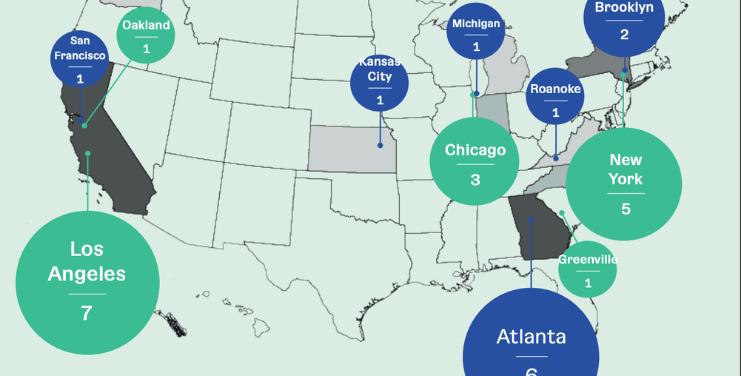A new study found that women in tech face more arduous careers than their male peers, far outnumbered by their male peers, enduring toxic bro culture, gender-based discrimination, and racism towards women of color.

The study, conducted by TrustRadius and published this month, surveyed nearly 500 U.S. adults across sectors of tech, finding long understood grievances women in tech already know and experience. In the study, 72% of respondents said women with tech jobs are outnumbered by men 2:1 or more at meetings, with a 26% subset reporting they are outnumbered 5:1 or more. The study notes that the lack of representation can lead to gender bias and to women being silenced in the workplace.
Irrespective of race, 78% of women in the study indicated that they feel they have to work harder to prove their worth, compared to 54% of male respondents, who overall made up a smaller portion of respondents. When broken out by race, 37% of Black women in tech and other people of color view their race as a barrier to getting a promotion, the study found. No matter their skill set, experience, know-how, or expertise, being non-white could be a stagnating factor along the path of higher achievement and pay. However, white women in tech were as confident as men overall in their ability to secure a promotion in the next two years. Women of color were 27% less confident that they would get a promotion, t a nearly 3X increase from last year, suggesting the racial equity movement had little bearing on the realities of what women of color are facing in tech companies.
When you take the intersectionality lens to that stat on confidence in getting a promotion and look at women of color, they are less confident than white women in their outlook, Megan Headley, Vice President of Research at TrustRadius, told The Plug. Racism is at the core of that, I’m not sure what else you could attribute that to. The study also found that women of color are also more likely than their white peers to identify gender bias, lack of trust, and budget issues as obstacles, bearing mental burdens in an industry still reverberating from pandemic losses that white employees are unaware of.
The impact of Black women being outnumbered, underrepresented, and discriminated against in a sector as sought after as tech could negatively impact financial success and the future of tech, an industry that is already highly homogenized with white and Asian workers. A report by the United States Bureau of Labor found that the pandemic caused one of the steepest drops in the number of jobs in history, surpassing the 2008 financial crisis.
Approximately 250,000 jobs have been lost in the last year in the information sectors, encompassing industries that deal in software publishing, telecommunications, and data processing. Black professionals and women make up a small percentage of the people who are employed in technology, but the current environment threatens to further concentrate white males in the sector.
Some groups of people took harder hits than others, ensuring a long, slow path back to recovery if they catch up at all. Women of all races have had higher unemployment rates than men since the pandemic. Hispanic women, followed closely by Black women, experienced the sharpest drops. Compared to pre-pandemic employment rates, white men are recovering twice as fast as Black women.
There are 10% fewer employed Black women than a year ago, compared to 5% fewer employed white men and around 6% of white women. Among what the women in the TrustRadius study wanted most or felt could improve their careers in tech was promoting more women in leadership positions. 79% of women said this is something companies can do to support their women workers, followed by 72% of women who wanted mentorship opportunities, and 64% who wanted flexible scheduling locations.
Flexibility is key. In terms of having a lot of opportunity for asynchronism in communication, and flexibility around when and how work happens that recognizes the diversity of situations that people might have at home right now, Headley said. Headly also urged tech companies to implement practices that limit how biases affect employees. Bring in practices that reduce the impact of unconscious bias, like standardizing what happens when deciding on a promotion or compensation change. No one wants lowered expectations, just a way to drive the outcomes that lead them to be successful at work, she said.








